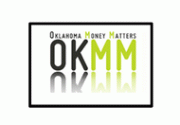What is Credit Anyway?
Credit is the ability to borrow money, and pay it back later...usually with interest. If you borrowed money from a friend, then they just extended you credit. Now a friend probably wouldn’t charge you interest because they wouldn’t want to profit from your predicament. But loaning money is a big business! Just think of how many advertisements you see encouraging you to apply for credit cards! They are running a business to make money and based on your financial history (that’s your credit rating) they may be willing to loan you money, or extend you credit. If you aren’t very trustworthy and are slow to repay your debt (that would mean you probably have a low credit rating) they may consider you a bad investment and will deny you credit.
Types of credit.
The three most common types of credit are revolving, installment, and open.
Revolving credit: This type of credit sets a maximum amount you can borrow, called a credit line. Credit cards fall into this category. As long as you stay under the limit, and pay at least the minimum amount each month you can continue to use the credit card. Beware though! If you only pay the minimum payment set by the lender and the balance that you owe rolls into the next payment cycle you are accruing interest on the balance...and it is usually high! Best practice? Pay the balance in full every month! You can get yourself in a mess if you only pay the minimum amount due...and this is where those credit card companies make a lot of money! Don’t fall into the trap of maxing out your credit card and then only paying the minimum amount. Don’t do it!
If used properly, a credit card can be a convenient alternative to cash and can help build or repair your credit score. Don’t be tempted by the specials that credit card companies offer to acquire your business as it is just too easy to overspend with multiple credit cards, and then you will find yourself in a financial sinkhole. Credit card debt is especially troublesome for young adults who spend beyond their means. Think before you swipe that card! It is not free money...you will have to pay it back...with interest. So be smart!
Installment loans: This type of credit allows you to borrow a set amount and then you must pay it off in a set number of payments called installments. A car loan and a home loan (mortgage) are installment loans. The interest you will pay is usually fixed, so you know the total amount, principal and interest, that you will pay for the life of the loan.
Open credit: This type of credit requires payment in full at the end of a cycle. Utilities are a good example of this type of credit as they provide you a service then you pay for that service in full at the end of the monthly cycle. They are extending you credit while you use their service, then they want payment! As a note, it is wise to monitor your utility bills throughout the month by logging into your account to determine an estimate of what you will be billed for that month. As utility bills vary monthly, it is important to anticipate how much you will owe as it will impact your budget.
Having the ability to borrow money is essential in today’s world. Having a good credit score and a consistent payment history leads to more businesses wanting to loan you money and it usually means you’ll get a lower interest rate. Thankfully, there are things you can do to improve your credit score!
Build a good credit history.
Building a good credit history is one of the smartest financial moves you can make. Your credit score is most effected by your payment history – 35% of your score! Be mindful of when a payment is due, and pay it in advance of the due date to insure it will be posted to your account before the due date. The second largest factor determining your credit score depends on keeping your balance owed on revolving credit (credit cards) 30% below the available balance. That means...pay them off! If you only pay the minimum every month you are NOT helping your credit score. Utilizing all three types of credit (revolving, installment, and open) wisely demonstrates to lenders that you are a good risk and on your way to a stellar credit rating!
Manage your credit.
How do you manage your credit? Don’t spend what you don’t have! It is that simple! This is where your budget (you made one, right?) comes into play as you will know IF you can afford to buy something on credit. You must have a plan! Be realistic and know what you can afford. If you live beyond your means (spending money you don’t have) you will get into a financial hole that will seem impossible to escape! YOU are the pilot...set limits and stay within your budget.
Maintain a good credit score.
Your credit score is the tool lenders use to determine if they want to extend you credit and/or loan money to you. The FICO score, developed by the Fair Isaac Corporation, is the most recognized credit evaluation system. Scores, ranging from 300-850, (the higher the better) effect how much credit you will be eligible to receive and even have an impact on the interest rate given (you want a low interest rate). The score is calculated by analyzing five categories...this generates your FICO score.
- Payment history (35%)
- Amount owed (30%)
- Length of credit history (15%)
- Amount of new credit available (10%)
- Types of credit used (10%)
This “magic number” will either open doors for you, or slam them shut! So be proactive and pay your bills on time and in full. A score of 700 or above is generally considered good, while a score of 800 or above is excellent! While most scores tend to fall between 600-750, make it a personal goal to have an excellent credit score. To understand more about the FICO number, check this out.
Monitor your credit report.
Just like lenders are monitoring your credit score, it is important that you monitor your score as well to make sure something hasn’t been falsely reported or someone else isn’t using your credit! You are entitled to a free copy of your credit report every year from The Annual Credit Report Service as required by the Fair Credit Reporting Act. For a small fee, you can also get additional copies of your credit report from major consumer reporting agencies.
- Equifax: 800-685-1111
- Experian: 888-397-3742
- TransUnion: 800-888-4213
Checking your credit score is known as a ‘soft’ inquiry which won’t impact your credit score. But know that if you apply for a loan or credit card, these are known as ‘hard’ inquires and will lower your credit score by as much as 5 points for each ‘hard’ inquiry and will stay on your report for up to 2 years. So, apply for credit wisely! Remember, the name of the game is to raise your credit score!
To wrap it up.
Credit. It’s probably going to be something you deal with all your life so it is to your advantage to understand how all of this works! A few simple rules:
- Live within your means
- Pay your bills on time
- Pay more than the minimum balance due on credit cards or even better, pay the entire balance, monthly
- Live within your means (oh...that must be a really important one!)
- Mix it up and try to utilize all three types of credit
- Pay your bills on time (this is important!)
- Live within your means (yes...)
- If you follow these words of advice, an excellent credit rating is in your future!
This information presented in cooperation with Oklahoma Money Matters, the financial education outreach initiative of the Oklahoma College Assistance Program (OCAP), an operating division of the Oklahoma State Regents for Higher Education. For more information about OKMM, visit www.oklahomamoneymatters.org or call 1-800-970-OKMM.







